Save Our Voices: The Research
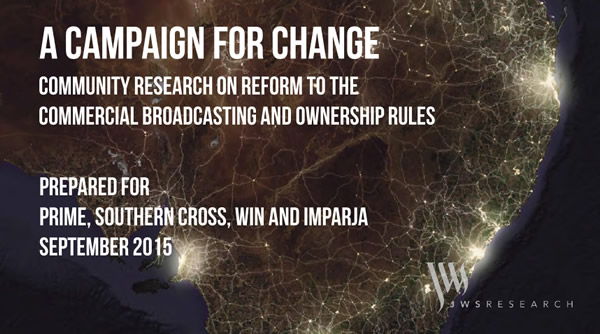
“A major new research study has found overwhelming support among Australians in regional and rural areas for the Federal Government to update outdated media laws so that local news services remain viable.” That is the headline from the new research released by Save Our Voices.
They have down a whip around NSW, VIC and QLD to survey people in regional markets. In terms of the sample, it is 1200 people with a 49/51 percent Male and Female spilt. And 51% sit in regional markets that are classed as marginal seats.
We will save you some time straight up, not one question or reference is asked around radio, radio services, radio local news or content. It is TV centric all the way.
But the Save Our Voices campaign is backed by Prime, WIN, Southern Cross Austereo and Imparja – the bulk are TV license holders mainly, with each gunning for a change to the 75% reach rule and the two out of three rule. The current Broadcasting Services Act restricts the number of types of media any one company can own.
While radio is not reference, it does give a nice snapshot of what is still an important drivers in regional markets – Local news and Local content.
Here are some of the results:
- 86% regard access to local TV news bulletins as important or very important and 85% of people are concerned about losing their local news bulletin;
- 81% believe regional broadcasters play an important role in covering local events and issues and keeping local communities informed and 88% are worried about losing touch with their local community if local news is cut back;
- 82% supported changes to media rules that would help regional broadcasters continue to provide local news services.
What happens when you prompt respondents about what Media reform means, does that shift the results?
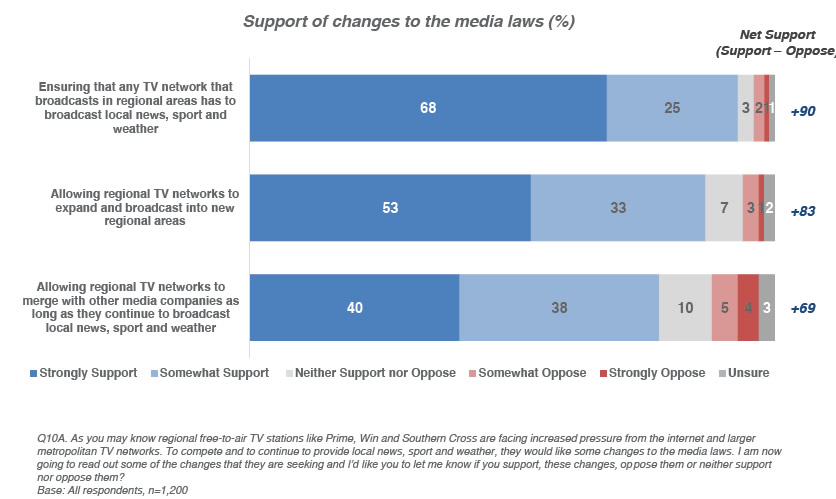
Former Deputy Prime Minister and Nationals Leader Tim Fischer who is the front man for the Save Our Voices campaign says: “These survey results show overwhelmingly and unambiguously that the old media laws are out of date and must change if local voices, local stories and local issues are to get the attention they deserve”.
“The current rules are 23 years old, from a time before the internet, smartphones and tablets. Not only that, while regional broadcasters remain shackled by regulations that restrict how many people can access their services, the ABC, SBS, all metropolitan commercial TV networks, internet news and entertainment providers and pay TV can reach 100% of the Australian population with no restrictions.
“The survey reveals strong, broad-based community support for updating the rules to create a level playing field that will give regional broadcasters a fair go.
The Save Our Voices campaign on regional TV and radio has had a fair flogging since launching, but did it translate to regional people understand ingor caring about Media Law reform at the start?
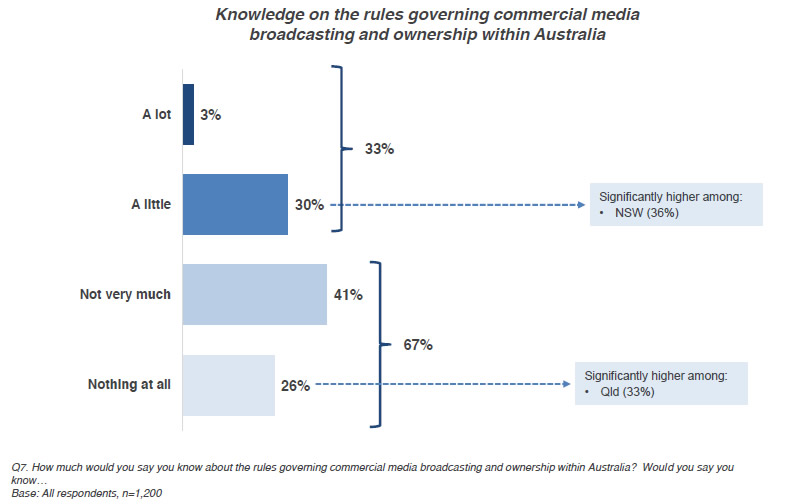
As the 15 minute research progresses, there appears to a shift of opinion: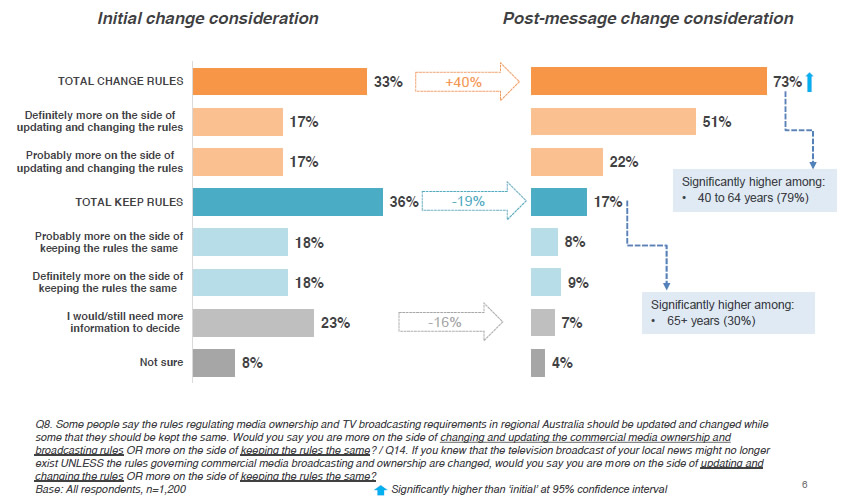
Tim Fischer said people in regional and rural Australia were very concerned about obstacles facing regional broadcasting because of the wider economic and social value it provides to the communities it serves across Australia.
“The vast majority of people in regional and rural areas understand that local broadcasting does much more than just provide local news. It provides low cost advertising platforms for local businesses, it employs thousands of people, it provides local sport and weather and donates tens of millions of dollars in free air-time for community service information and local business, sports and community groups.
“We must do everything we can to ensure regional broadcasting can continue serving rural and regional communities,” Mr. Fischer said.
“Almost three-quarters of people surveyed believe coverage of local issues will decline further if the rules don’t change while two thirds believe that without reform further cutbacks and closures to local news services are inevitable.
“It is clear that regional and rural Australians understand that the current rules favour the major media outlets at the expense of regional media,” said Mr Fischer.
“Regional broadcasters need to achieve economies of scale to survive. It is no coincidence that the two regional networks that provide the highest level of local content, Seven Queensland and NBN are both wholly owned by the major networks Seven West Media and Nine Entertainment Co.
“In this survey 86% of people supported the idea that regional networks should be allowed to expand and 78% supported new rules that would allow regional broadcasters to merge so that they can achieve the scale they need to provide strong local coverage,” said Mr Fischer.
The outtake from the research summary: Local content is still king. How are you delivering local info for your market? What mirror are you holding up and reflecting back each day?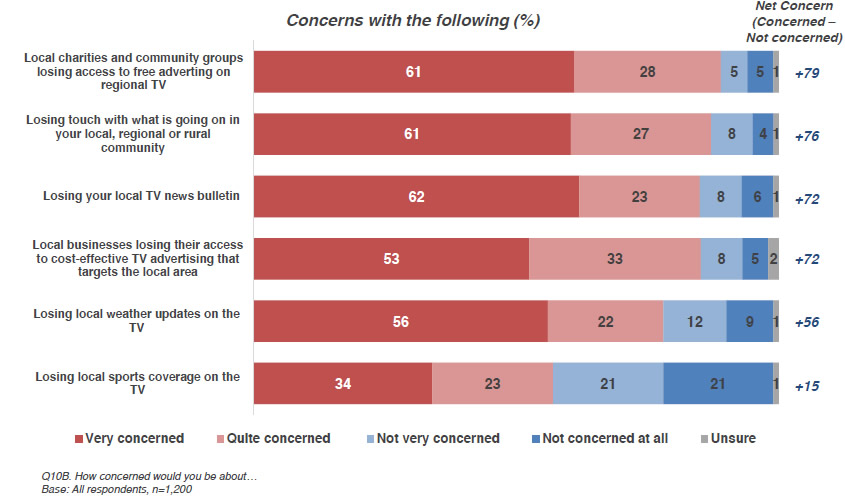
You can view the research summary here.



